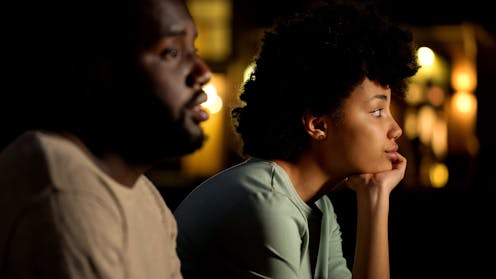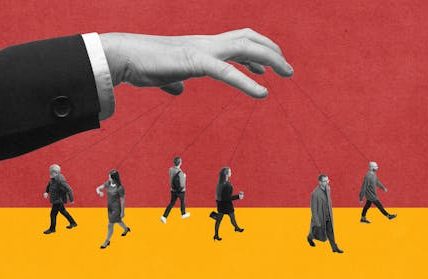Why dating can be tough for autistic people – and what may make it easier
Modern dating is stressful enough, and that’s even before you throw in premium subscriptions, ghosting and the unwritten rules of flirting. But for autistic people, there are even more variables to consider.
Loud venues, ambiguous body language and the social exhaustion of meeting someone new can turn what’s meant to be a fun experience into an overwhelming ordeal. For many autistic people, dating can be a confusing and exhausting process, shaped by social rules that often feel unclear or exclusionary.
Being autistic affects how people experience the world. This includes how one may communicate, build relationships and interpret social cues. So, it’s perhaps no surprise that dating, with all its unpredictability and implicit expectations, can present a variety of challenges.
One common misconception is that autistic people lack empathy or can’t communicate effectively. But the double empathy problem, a theory proposed by the British sociologist and social psychologist Damian Milton, challenges this view.
Instead of seeing communication difficulties as a “deficit” in autistic people, the theory suggests that misunderstandings arise from a mismatch in perspectives between autistic and non-autistic people. In other words, it goes both ways.
Dating today can feel like a mix of endless swipes, red flags and shifting expectations. From decoding mixed signals to balancing independence with intimacy, relationships in your 20s and 30s come with unique challenges. Love IRL is the latest series from Quarter Life that explores it all.
These research-backed articles break down the complexities of modern love to help you build meaningful connections, no matter your relationship status.
Studies show that autistic people often communicate well with each other, and often as well as non-autistic people do among themselves. Some autistic people have also described the benefits of having autistic friends because of this ease of communication.
In theory, this could make dating within the neurodivergent community easier. But of course, who we’re attracted to is rarely that simple.
For some autistic people, popular dating environments, such as restaurants and bars, can be overstimulating places. Going on dates can lead to exhaustion from the logistics of organising oneself, breaking routine and navigating interactions with unfamiliar people.
Differing communication styles and ways of being, alongside the stigma towards neurodivergence which some people still hold, can lead to upsetting experiences and even harassment.
Online dating
For some, online dating could offer a helpful alternative. Apps such as Tinder or Bumble allow users to take their time, plan responses and reduce the pressure of immediate social interaction.
One may think this type of less socially demanding environment, as opposed to face-to-face dating, would be beneficial for autistic people. The ability to pre-select preferences and filter matches, for example, can make things easier for those autistic people who value structure and clarity.
But digital dating has its own difficulties. Many dating platforms are designed around neurotypical expectations. This may include how people present themselves, communicate and even what kind of relationships they’re looking for. Some autistic people have reported finding it hard to strike a balance between fitting into those unspoken norms and being authentically themselves.
These challenges can be even more pronounced for autistic people who are also LGBTQ+ or exploring non-traditional relationship structures.
Some platforms cater specifically to autistic and neurodivergent people, for example, Mattr and Hiki. But many such apps operate on premium models, creating potential barriers for users already facing social or financial challenges.
Online dating has its own set of challenges.
Nicoleta Ionescu/Shutterstock
What can help?
Autistic advocates suggest a few practical strategies for navigating dating, online or off.
First, be clear about your communication preferences. Second, look for connections where you feel safe being yourself, without masking. Third, be wary of dating advice that assumes everyone thinks or communicates the same way. And finally, remember that rejection isn’t always personal.
The question of whether to disclose an autism diagnosis is deeply personal. Many fear being misunderstood or judged. But being honest, and using neurodiversity-affirming language may be viewed positively by prospective daters who don’t have stigmatising views of autism.
Studies on autism and dating remain limited. More research is required to understand the unique experiences of neurodivergent daters so that more resources can be created to help them.
Despite this lack of wider understanding, autistic people continue to build meaningful relationships, often by challenging the rules of dating and redefining them on their own terms.
Get your news from actual experts, straight to your inbox. Sign up to our daily newsletter to receive all The Conversation UK’s latest coverage of news and research, from politics and business to the arts and sciences.
Rebecca Ellis does not work for, consult, own shares in or receive funding from any company or organisation that would benefit from this article, and has disclosed no relevant affiliations beyond their academic appointment.



